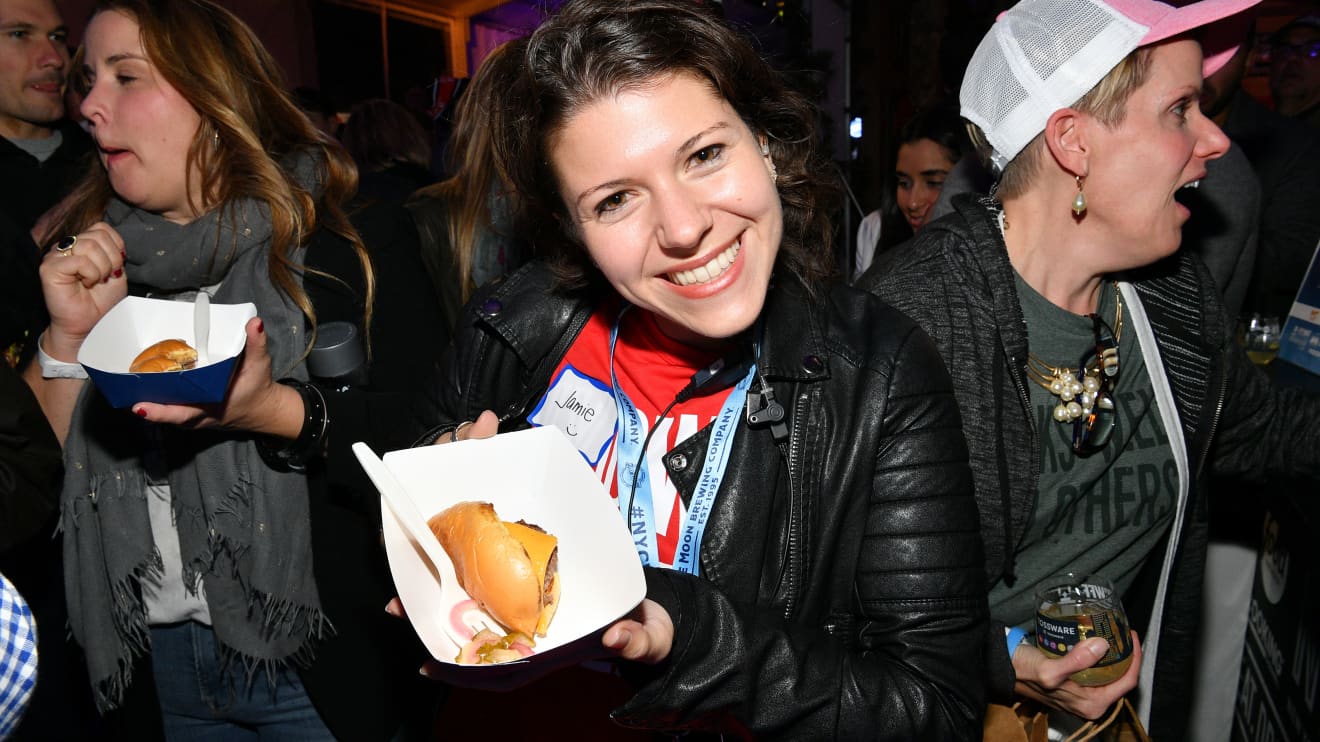This post was originally published on this site
Even as New York City grapples with an increase in coronavirus cases over the past several weeks, it is beckoning a growing number of tourists.
Airbnb
ABNB,
says the city is the most popular fall destination among its U.S. travelers, putting the Big Apple ahead of such other popular places as Chicago, Boston, Washington, D.C., and Massachusetts’ Berkshires region. In general, Airbnb said urban locales are trending lately, a change over last year, when rural destinations had strong appeal.
The Times Square Alliance, a nonprofit organization that represents the area that is considered the city’s tourist hub, also reports a sizable uptick in pedestrian traffic compared to a year ago. Over this past weekend, the organization said 240,000 people visited the area, which represents a 147% increase versus roughly the same period in 2020. (In 2019, the figure was much higher — 422,000 — for the timeframe.)
Businesses that cater especially to tourists also said they’re seeing strong demand for the weeks and months ahead. Carmine’s, an Italian restaurant that’s been a fixture in Times Square for nearly 30 years, is already filling up for the holidays.
“Our November and December are going through the roof,” said Jeffrey Bank, chief executive officer of Alicart Restaurant Group, the company behind Carmine’s.
The city still faces challenges, business owners and others concede. For starters, coronavirus numbers are tracking much higher than they were before the delta variant took hold. In June and July, case counts in the city were often falling below 200 per day, according to the New York Times tracker. Now, they are nearing or topping 2,000 per day.
And as relatively rosy as things may be looking, the city is still hardly attracting the volume of visitors it did in the pre-COVID-19 era. In 2019, the city welcomed a record 66.6 million visitors, according to NYC & Company, the city’s official tourism organization. In 2020, that number fell to 22.3 million because of the pandemic, but NYC & Company has projected it will increase to 36.1 million in 2021.
Chris Heywood, executive vice president with NYC & Company, said it’s not hard to see why the city is tracking so well for the fall. He pointed to the reopening of Broadway — a number of shows, including “Hamilton,” are resuming performances in September — as well as the return of several significant annual autumn events that were cancelled in 2020, including the New York City Marathon.
“It’s the turning point we’ve been waiting for,” Heywood said.
Heywood also said the city may hold appeal to visitors because of the precautions it’s taking in relation to the virus, including requiring proof of vaccination for anyone going inside a restaurant or an entertainment venue.

A guest at the 2019 New York City Wine & Food Festival. The event is returning this fall.
Getty Images for NYCWFF
Lee Schrager, who runs the New York City Wine & Food Festival, said he is “cautiously optimistic” about attendance for this year’s event, scheduled for Oct. 14-17, but it’s a little too early to tell. (Last year’s festival was confined to online.) Schrager also said that smaller festival events, such as intimate dinners with renowned chefs, are proving especially popular with ticket buyers, who may be hesitant about committing right now to larger gatherings.
The city has also added a new attraction of late in the Times Square area — a Ferris wheel that is run by a private company. It began offering rides in late August and will continue operating through Sept. 12.
New York City Mayor Bill de Blasio, a Democrat, was among those who recently visited the wheel.
“This is an amazing experience,” the mayor said on Twitter
TWTR,
“You’re floating over Times Square. It’s really cool. It’s really different.”
New York City still faces competition from other destinations, however. Florida has proved popular with visitors — at least during this year’s second quarter before the delta-related spike. Florida Governor Ron DeSantis, a Republican, credited his state’s relaxed COVID-19 restrictions for its tourism success.
“Florida continues to serve as an example for the country that when you reject lockdowns and unnecessary mandates, your economy will thrive,” said DeSantis in a statement.

